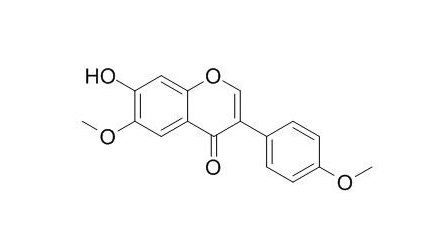Journal of Pharmaceutical and Biomedical Analysis-10 August 2018
時(shí)間:2020-09-03 瀏覽次數: 分享到:
Novel controllable hydrophilic thermo-responsive molecularly imprinted resin adsorbent prepared in water for selective recognition of alkaloids by thermal-assisted dispersive solid phase extraction
期刊名:Journal of Pharmaceutical and Biomedical Analysis
文獻編號:DOI 10.1016/j.jpba.2018.08.019
文獻地址:https://www.sciencedirect.com/science/article/abs/pii/S0731708518309853?via%3Dihub
發(fā)表日期:10 August 2018
 Abstract
A novel controllable hydrophilic thermo-responsive molecularly imprinted resin (T-MIR) with a switchable zipper-like architecture was synthesized in the aqueous phase and applied to the selective recognition and extraction of alkaloids by positive temperature regulation. In this synthesis process of T-MIR, 2-acrylamide-2- methylpropanesulfonic acid (AMPS) and acrylamide (AAm) were coupled as zipper-like thermo-responsive monomers, resorcinol, and melamine as hydrophilic monomers, formaldehyde as a cross-linker, and berberine chloride (BerbC) as the template. The resulting T-MIR achieved the controlled rebinding and release of BerbC from temperature stimuli (25–45 °C) and the adsorption process followed the Langmuir isotherm (R2>0.99856) and pseudo-second-order kinetic model (R2>0.98138). The highest theory adsorption ability (33.44 mg/g) and recognition ability (imprinting factor: 4.71) of T-MIR was activated between poly(AMPS) and poly(AAm) in the zipper-like architecture at 35 °C. T-MIR was then applied to the selective recognition alkaloids by dispersive solid phase extraction. The limit of detection and limit of quantitation of the method were less than 0.025 mg/L and 0.082 mg/mL, respectively. The recoveries of the proposed method at three spiked levels were 96.8–100.8%, with a relative standard deviation of less than 4.8%. In contrast to previous thermo-responsive materials, this switchable zipper-like hydrophilic T-MIR with good adsorption, specificity recognition, and excellent temperature controllable properties provides a unique alternative to the selective recognition and controlled rebind-release alkaloids by the temperature signal.
Sanguinarine (Sang, 98%),coptisine chloride (CopC, 98%), and chelerythrine (Chel, 98%) were obtained from Chengdu Desite Biological Technology Co., Ltd (Chengdu,China).
Abstract
A novel controllable hydrophilic thermo-responsive molecularly imprinted resin (T-MIR) with a switchable zipper-like architecture was synthesized in the aqueous phase and applied to the selective recognition and extraction of alkaloids by positive temperature regulation. In this synthesis process of T-MIR, 2-acrylamide-2- methylpropanesulfonic acid (AMPS) and acrylamide (AAm) were coupled as zipper-like thermo-responsive monomers, resorcinol, and melamine as hydrophilic monomers, formaldehyde as a cross-linker, and berberine chloride (BerbC) as the template. The resulting T-MIR achieved the controlled rebinding and release of BerbC from temperature stimuli (25–45 °C) and the adsorption process followed the Langmuir isotherm (R2>0.99856) and pseudo-second-order kinetic model (R2>0.98138). The highest theory adsorption ability (33.44 mg/g) and recognition ability (imprinting factor: 4.71) of T-MIR was activated between poly(AMPS) and poly(AAm) in the zipper-like architecture at 35 °C. T-MIR was then applied to the selective recognition alkaloids by dispersive solid phase extraction. The limit of detection and limit of quantitation of the method were less than 0.025 mg/L and 0.082 mg/mL, respectively. The recoveries of the proposed method at three spiked levels were 96.8–100.8%, with a relative standard deviation of less than 4.8%. In contrast to previous thermo-responsive materials, this switchable zipper-like hydrophilic T-MIR with good adsorption, specificity recognition, and excellent temperature controllable properties provides a unique alternative to the selective recognition and controlled rebind-release alkaloids by the temperature signal.
Sanguinarine (Sang, 98%),coptisine chloride (CopC, 98%), and chelerythrine (Chel, 98%) were obtained from Chengdu Desite Biological Technology Co., Ltd (Chengdu,China).


